Life in the military means long hours and lost sleep. Whether you’re stuck on a post or simply have to make mission, sleep is often relegated to the “luxury” category on your priority list, while things like security, accomplishing your objectives or making it to your destination hold the top spots. Fatigue, however, can be a serious risk—so it’s important to manage your rest in a similar fashion to things like weapons maintenance: do it when you can, where you can, so it won’t cost you the mission when the time comes.
For many of us, that sounds an awful lot like parenting.
My little girl was born at 2:41am on Thanksgiving Day, after 46 hours of labor that left my wife utterly drained. Although I had it much easier than my warrior queen of a wife, I didn’t feel much like a spring chicken by the time she arrived either. As those of you who already have kids know all too well, we thought it was the finish line, but of course, it was actually the starting gun.
Since then, sleeping has been sparse and light. I refuse to let my wife suffer the hardship of breast-feeding alone, so we’re both up every two to three hours, as I change diapers and prepare a pillow palace for the two most important women in my life to nurse, and she runs the marathon that is nourishing our child. The problem with all this love and excitement, of course, is that two sleep deprived adults need to avoid making the kinds of mistakes that might hurt our little bundle of joy.
In combat, the stakes are even higher. If you’re tasked with manning a post and keeping your eye on the horizon for impending attacks or people planting IEDs for tomorrow’s convoys, being awake is far from enough. The job requires vigilance, attention to detail, and the power of will to overcome complacency hours into an uneventful shift. During those long nights with a rifle (or a baby) on your shoulder, maintaining situational awareness through the fog of fatigue is more than important: it may be the difference between life and death. With that in mind, here are five methods I learned in the Corps to combat the negative effects of sleep deprivation, and they could easily be applied to other sets of sleepless circumstances:
Caffeine
This one seems like a no-brainer, but anyone that’s pounded three Red Bulls in a row (with or without vodka) can likely tell you that the secret to effective use of caffeine is managing your intake properly. Too much too fast will leave you with nausea, abdominal cramping, and a general sense of misery to add to your exhaustion.
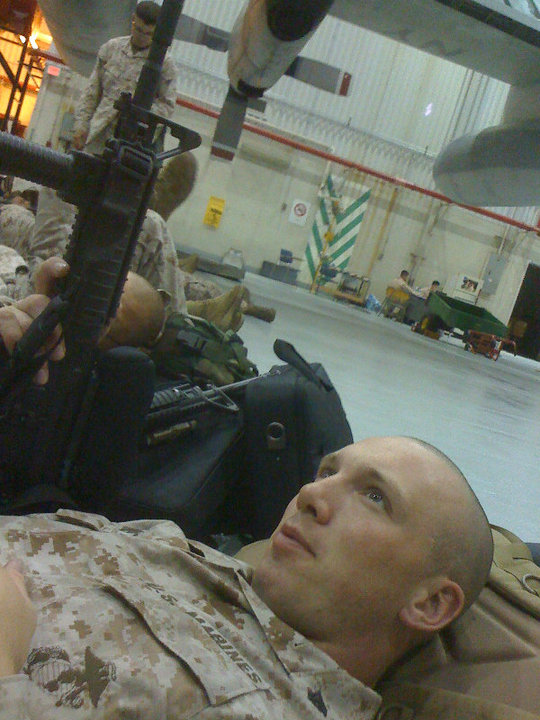
There are a lot of caffeine delivery methods at your disposal, ranging from the tried and true beverages, caffeinated gum (that comes with some MREs now), all the way to my old post standby—putting a pinch of instant coffee in a bit of napkin and tucking it into my lip. The way you get it into your system doesn’t much matter, but the amount of caffeine you ingest does. Generally speaking, you should try to avoid ingesting more than 400 milligrams of caffeine in a 24-hour period, but you may find it necessary to increase that in some circumstances, but remember to intake slowly so your body has a chance to use the drug effectively without negatively effecting you.
Nicotine
If you’ve ever spent time with Marines, you know they have a propensity for chewing tobacco. Many will tell you it’s a habit born out boredom, but as a guy that hates the shit, I can’t deny its effectiveness as an alert aid. Cigarettes and cigars work similarly well, but in some security (or social) situations, lighting one up may not be feasible.

Like with caffeine, nicotine is a drug that can easily leave you feeling worse than when you started if you overwhelm your body’s ability to manage it. You also have to consider the long-term ramifications of tobacco use—those could be argued that they make this option far from worth it, but there are occasionally circumstances that demand trading long-term health risks for immediate concerns about survival. With that in mind, I would avoid this option unless your life, or the lives of others, are genuinely on the line.
Conversation
Sometimes, all it takes to stay awake is a lively conversation—and the livelier that convo, the better. Nonsense pleasantries about what you did today may do very little to keep you from feeling exhausted, but a discussion about something you’re passionate about can help ease pain, reduce stress or anxiety in the moment, and get your mind off of just how tired you are.
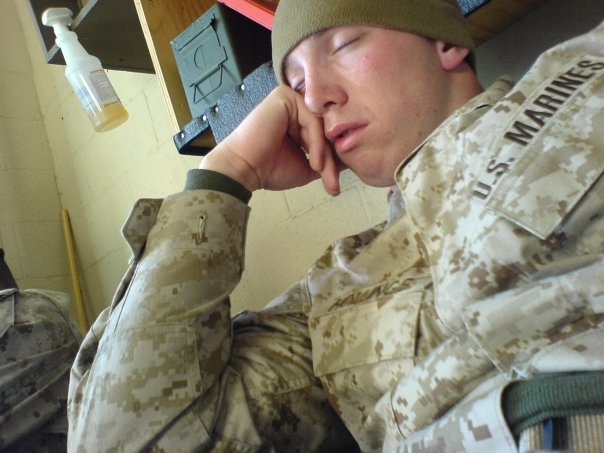
If you have someone to talk to, start by discussing things that matter to you, or even the types of stuff you’d normally avoid in pleasant conversation (it’s hard to pass out while arguing politics). If you’re alone, talking can still work – as long as you don’t mind being the weirdo with baggy eyes talking to himself.
Activity
One sure-fire method of shaking off exhaustion is, coincidentally enough, more physical activity. Passive self punishment, like pinching yourself, rarely actually works—but getting up and moving around almost always does. Do a set of push ups, jumping jacks or jog in place. As your body recognizes your need to perform physically, it will ease back on the reigns of misery and allow you to accomplish the task at hand.
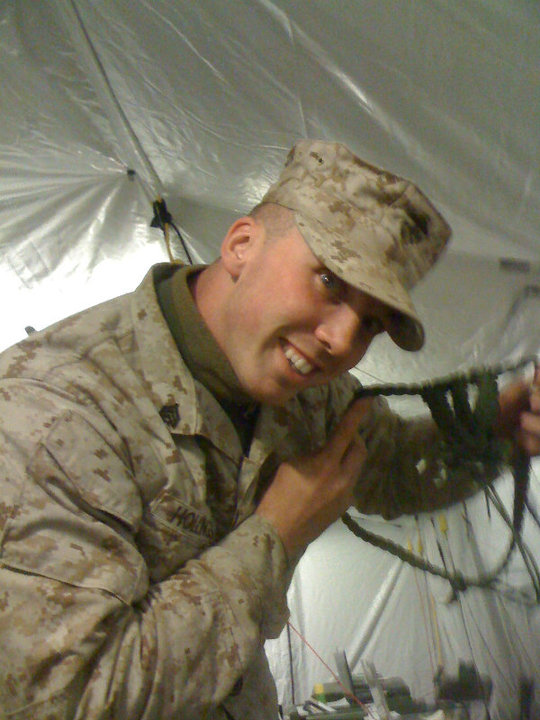
Of course, it’s important to remember that intense physical activity is going to increase the sleep debt you’re accumulating, leading to increased levels of exhaustion and your hydration and caloric needs, which may be an important factor to consider in some sets of circumstances.
Ride the wave
Exhaustion, like hunger, is sort of like a biological low battery light, intended to make sure you know that your body needs to recharge. However, unlike your iPhone, your body is also genetically hard-wired to survive long after those warnings pop up. If you’ve ever skipped a few meals, you likely felt hunger pains come on, and eventually subside. Your body told you that you need to eat, but after a while, it also recognizes the need to function in sparse circumstances. Exhaustion works the same way: it will come on in waves of misery that will subside if you can outlast them.
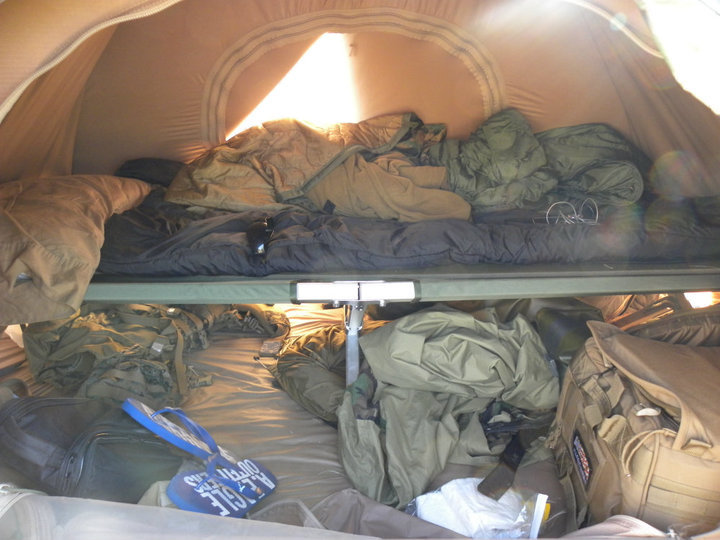
Of course, this won’t work forever, but I’ve made it for days on little more than stolen moments of sleep here and there using my pack as my pillow, all because I was able to use the methods above to make it through each round of utter, exhausted misery. It’s not a good thing to do to yourself, and can’t be employed with regularity (it actually takes weeks to recover fully from a few days of lost sleep), but if you ever find yourself covering expanses of terrain in an unfriendly nation, standing guard where others are relying on you, or just rocking a baby back to sleep on your 36th hour since you took a break, rest assured, your body can do some incredible stuff. You just have to be able to manage it.
Now, if you’ll excuse me, I’m going to go get some sleep.
Images courtesy of the author.

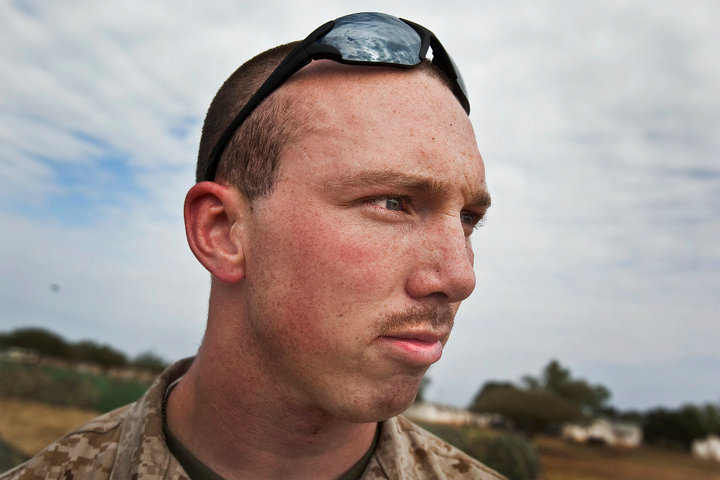








COMMENTS